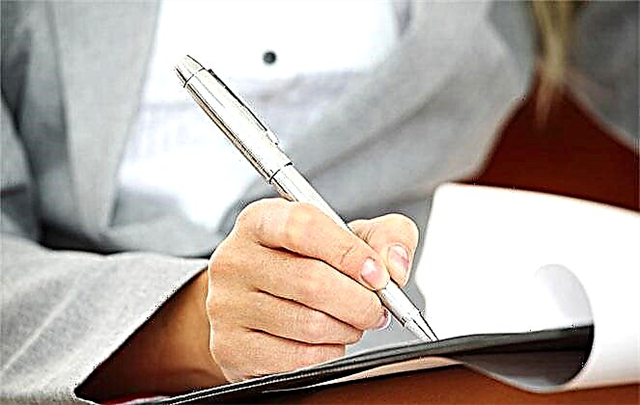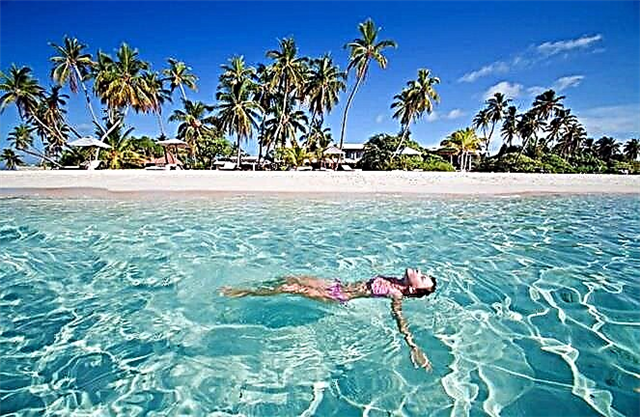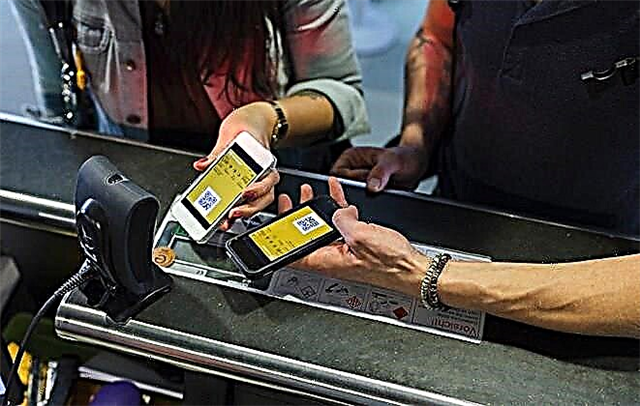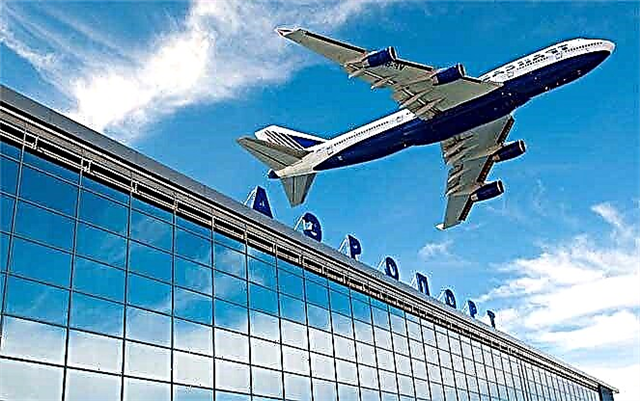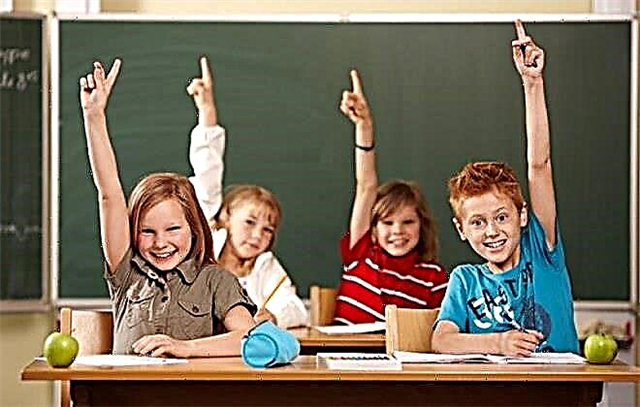The state of the education system testifies to the well-being in the country as a whole, and special attention is paid to this issue in the Czech Republic. Schools in the Czech Republic until the early 90s of the last century were exclusively under the care and control of the state: it was believed that private services would not be efficient enough. Today, this border has been erased, and graduates of private educational institutions also successfully pass exams and move on to the higher level of education.

What are the stages of the Czech education system
Czech legislation states that every citizen of the country must necessarily obtain a minimum level of knowledge, confirmed by a certificate. This means that all children, without exception, will have to complete 9 classes. Whether to receive further education, each child decides for himself. Most of the students prefer to move to the next level and receive a diploma of higher education.
Czech children acquire certain knowledge at several stages:
- preschool education;
- basic education;
- senior school level (gymnasiums, vocational and special schools);
- higher education.
Some do not stop there and continue their academic careers in doctoral programs.
Socialization of the child begins in infancy with a nursery, which he attends up to three years. Then he goes to kindergarten, where he can stay for up to 6 years.
Public kindergartens do not charge group fees for toddlers. The cost of services for private kindergartens ranges from 7 to 15 thousand kroons per month (270-580 euros).
Primary school for little Czechs is planned from 6 to 10 years old. From 10 to 15 they go to high school. After that, a decision has to be made: to finish the educational process, to enter a gymnasium, to become a student of a vocational school. Only with a diploma confirming the completion of the last two types of educational institutions, a graduate can apply to a university.
Already at the preschool level, kids receive the basics of knowledge in general subjects, as well as work out their writing and reading skills. Many kindergartens teach foreign languages to children.
There are many advantages of studying in a Czech school:
- a wide variety of educational institutions, including private, public and Russian schools;
- the possibility of obtaining a profession after graduating from a gymnasium or vocational school;
- studying Czech and English;
- the possibility of entering a university in the country with good training in the chosen specialty;
- there is a high probability of avoiding problems with integration into the local society, since it is easier at an early age.
Foreign children can use the services of an adaptation information center located in Prague, supported by the Czech Ministry of Education and the EU Council. All information about programs for foreigners contains the official website of the center.
More details about the stages of education are described in the article "The education system in the Czech Republic".
Stages of education
Schools in the Czech Republic can be divided into general education and with a specialized bias:
- artistic;
- sports;
- linguistic.
The quality of the knowledge provided and the educational stages in all institutions can be considered approximately the same. The only thing that distinguishes private schools from public ones is the payment that parents pay for tuition.
Preschool education
A child's visit to a kindergarten in the Czech Republic depends only on the decision of the parents. They can raise their baby at home or give them to caregivers both for the whole day and for half of it. The choice of the institution is also up to them.
Most often, the child attends the kindergarten that is closest to home or is on the route of adults home from work.
The main problem of state institutions is the lack of places. In July and August, most of the gardens are closed for the holidays, and therefore the question of who to leave the baby with is extremely relevant for Czechs.
The number of teaching hours for children from 3 to 6 years old is no more than 17 per week. In the classroom, they master the following skills:
- reading;
- letter;
- Painting;
- solving logical problems;
- development of creative skills;
- singing.
The preschool education program includes excursions, visits to museums and theaters, regular walks, learning a foreign language, and sports. All educational institutions of this level are strictly controlled by the Ministry of Education.

Basic school
School education from 6 to 15 years old is compulsory. This provision is enshrined in the Education Act of 1949. Conventionally, this period in the life of every student can be divided into two parts:
- 5 years of primary school;
- 4 years of junior high school.
After the fifth grade, the student has the right to decide whether he will continue his studies in an incomplete secondary school or enroll in a gymnasium.
In the second case, exams are provided, and then training will be carried out on a paid basis. This is due to the fact that the gymnasium program combines the second stage of the basic school and the next stage of the senior school. Based on the results of the completion of the basic (incomplete) secondary school, a certificate of maturity is not issued.
Education in a private school makes it possible to include additional subjects in the program. But usually this service is paid.
English schools in Prague are in great demand:
- English College;
- English International School;
- Montessori school;
- International School;
- Waldorf School.
Such educational institutions are usually specialized and teach from basic school to upper secondary. Some of them offer full board to their pupils. This usually applies to high school students (from 15 years old). The Riverside Schooll School belongs to this category.
Senior classes
Education in the Czech Republic at the secondary level can be considered complete only after the end of the senior classes. This stage in the life of schoolchildren is seen as a kind of milestone at which they must make a choice of a further path.
Upper secondary education can look like one of three stages:
- high school - education lasts 1-2 years;
- special school - takes 4 years, implies the issuance of a certificate of maturity and the passing of final exams, after which you can apply for admission to a university;
- gymnasium - for admission you will have to pass exams, the educational process lasts 2-5 years, ends with the passing of final tests and obtaining a certificate of complete secondary education, which opens the way to the university.
How to choose the type of educational institution and what you need for admission, read the article "Colleges and gymnasiums of the Czech Republic".
How to enroll a child in school
There shouldn't be any problems with getting to school. To begin with, you should choose an educational institution. And although the principle of territoriality in the country has been abolished, you still have to explain to the director why you live, for example, in Prague 10, and you want to enroll in a school in Prague 1. You will have to prepare for such a conversation.

Package of documents:
- Birth certificate (translated and notarized).
- A copy of the passport with the residence permit of one of the parents and the child.
- Extract from the school in which the child studied in his home country with grades for all years (with translation and notary certification).
You will have to go through an interview with the director. The main questions that will concern him are the performance of your student and his knowledge of the Czech language.
For admission, it is enough to have an A-level (initial). But even if the child knows only two words, you need to try to convince the director that your candidate is in the process of learning the language, attends a language school and has already achieved good success.
Basic school education is free for all students.But a private institution will cost a lot: from 45 to 450 thousand crowns per year (1750-17500 euros).
Czech language courses can be found at any university and in many private gymnasiums. A particularly large number of them are concentrated in the capital. The average Prague linguistic school charges 250-300 euros per month for teaching two languages - Czech and English.
If you want your child to continue their education after the 9th or 11th grade in the Czech Republic, you need to be prepared for the fact that this process can take from 1 to 4 years before entering the university. The term depends on the chosen training program and some differences in the number of hours and disciplines in Russia and the Czech Republic.
From the documents you must have:
- Certificate.
- Parental permission to travel abroad.
- Foreign passport with a student visa, category D.
The first thing to do is to pass the nostrification of the certificate. After that, you will have to pass a test for the level of proficiency in foreign languages: English and Czech. However, if a student speaks well in the state language of the country, then his weak English will be forgiven.
Interesting to know: in the second half of the 20th century, the Prague phonological school emerged in the Czech Republic, which put forward a new concept of the structure of the phonemic structure of the language. Its founder was the Russian linguist N.S. Trubetskoy.
Features of the Czech school
For the admission of students in the new year, each educational institution prepares in advance. In January-February, open days are held, which are especially remembered by kids thanks to the theatrical form with many elves and other fairy-tale characters.
If at such an event you are interested in a specific teacher, you can indicate his name in the application for admission and, most likely, the child will go to his class. Two weeks after the filing of the application, a notification of the child's enrollment is received, and two weeks before the start of the school year, lists of students appear on the school's website.
The knowledge assessment system in the Czech Republic is slightly different from the Russian one. It is also five-point, but only 1 is the highest and 5 is the lowest.
In the first grade, students are not yet graded and all lessons are taught by one teacher. First graders have 4 lessons every day. In the second grade, they have two more classes twice a week.
Language schools in the Czech Republic most often have a more dense program due to the large number of linguistic disciplines.
Schoolchildren have lunch between lessons and after-school classes. From childhood, they are taught to treat food wisely.
In the extended day group, no one teaches lessons with children - they are busy with extracurricular activities until the evening: dancing, going to the theater, sports, drawing, drama circles and other activities.
Summer vacations last from early July to late August. At Christmas, schoolchildren are released for two weeks and they have one more to rest in the fall and spring.
Additional weekends most often occur on Easter (5 days), at the turn of the academic semester (end of January), on School Day (declared a day off by the decision of the school council).
From the second year of study, once every two weeks, instead of classes, students go to museums, theaters, galleries, skate, swim in the pool.
There is no uniform school uniform in the country. Therefore, children can go to classes in ordinary clothes. The main thing is that their appearance does not interfere with their studies and does not go beyond reason.
Several popular schools
The problem of choosing an educational institution can lead to a dead end, which is facilitated by a wide variety of schools. Here is a list of some of them that deserve the attention of Russians:
School "Veda" - arose on the basis of an international school with an enhanced study of a foreign language. It is the only educational institution accredited in the country that teaches children from the Czech Republic, Kazakhstan, Russia, Ukraine and other countries with the provision of housing.

Training is conducted in three areas:
- 1-9 grades (Russian or Czech programs);
- 10-11 grades (Russian program);
- extracurricular programs (hobby classes).
Here is the only center in the EU where you can take the Unified State Exam. Tuition fees include:
- one-time fee - 500 euros;
- 1 class education - 428 euros;
- 2-4 grades - 448 euros;
- Grades 9-11 - 584 euros.
The school in the Czech Republic at the Russian Embassy was founded in 1953. Carries out the educational process at three levels:
- primary education - 4 years;
- basic general education - 5 years;
- secondary complete - 2 years.
The cost of training is 155 euros for 1 month. And although the advantage of being enrolled in this educational institution belongs to the children of consulate employees, ordinary citizens also have a chance to get here.
- Electrotechnical secondary school named after František Kryzhik. Training is conducted in the following areas: information technology, electrical engineering, computer technology. Upon completion of the training course, graduates have the opportunity to work in the field of engineering, programming, energy. Those interested can continue their studies at the university.
- The first Czech-Russian gymnasium is the Russian School in Prague, which is one of the private educational institutions. Most of the programs are designed for Czech students who want to learn Russian. But there are also courses that accept Russian-speaking children to study the Czech language.
The school conducts training for students in grades 9-11. Based on the results of the final testing, a certificate of maturity is issued, allowing you to continue your studies at universities.
- Lycee Francais de Prague is an international lyceum in Prague. The educational program is designed for children from preschool age to senior classes inclusive. Since 2000, the Lyceum has been running a Franco-Czech program for Czech citizens who have reached the age of 10. The main objective of the course is to prepare children for admission to French universities.
The Czech language is compulsory for all lyceum students regardless of their citizenship.
School fees (in euros for 1 year):
- kindergarten - 6300;
- primary school - 6300;
- high school - 8176;
- high school - 8955.
Outcomes
In the Czech Republic, preparing children for school begins in kindergarten, although attending it is not an obligatory stage in the education process. Secondary school is divided into elementary, basic and high school. Only complete secondary education gives the right to enter universities. All schools are divided into private and public. Those interested can enroll in an educational institution with a narrow specialization.

